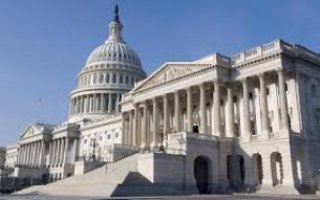
The biggest driver of illegal immigration in the United States is economic opportunity. The ease with which aliens without work authorization can procure a job in this country is an attractive magnet to come to the U.S., either unlawfully across the border or with permission and overstaying a visa. Illegal aliens are rational people who respond to incentives. They have rationally calculated that the expense of paying a cartel or coyote to be smuggled across the border or the fees to obtain a tourist visa and plane ticket are miniscule compared to the financial benefits of U.S. wages, regardless of the job.
The economic harm of illegal aliens in the workforce is obvious. Lower skilled Americans, including minorities and young people, either lose their jobs, cannot obtain a job, or have their wages suppressed. Unscrupulous employers who intentionally hire illegal aliens obtain an unfair advantage against their competitors by reducing their payroll expenses, resulting in enlarged profits or additional capital to invest in the company to make its products more appealing to American customers unaware of these nefarious hiring practices.
But it doesn't have to be this way. In fact, much of the economic harm of illegal immigration can be cured for free. The U.S. government already has an online system that employers can use to instantaneously confirm the employment eligibility of their employees. The system is called E-Verify and it is free to use and over 98 percent accurate. E-Verify is far more efficient and effective than the current paper-based Form I-9 process that effectively requires human resources employees to function as document integrity bouncers. What is your confidence level in being able to identify if the driver's license presented by an employee is legitimate or a forgery? HR professionals are well versed in many areas, but they are not experts in validating identity documents, nor should they be. Ensuring the integrity of the workforce should be the job of the government whose databases are best positioned to know with certainty whether or not a particular employee is authorized to work.
While E-Verify usage has increased in recent years, the majority of private employers still do not use it. That could change soon if Congress is serious about improving the wages of Americans. Earlier today, Sens. Tom Cotton (R-Ark.), Mitt Romney (R-Utah), Shelley Moore Capito (R-W.Va.), Susan Collins (R-Maine), and Rob Portman (R-Ohio) introduced the Higher Wages for American Workers Act, a bill that would phase in mandatory E-Verify while gradually increasing the federal minimum wage. Specifically, the bill provides an 18-month phase in of mandatory E-Verify to give small businesses additional time to comply, increases civil and criminal penalties on employers that hire illegal aliens, requires employees at least 18 years old to produce a photo ID that the employer would match against any photos contained in the E-Verify system, and provides $100 million annually for E-Verify to ensure it is not impacted by a government shutdown. At the same time, over a several-year period the bill would increase the federal minimum wage (with a lower amount for small businesses for the first five years) to $10 an hour. Starting six years after implementation, the federal minimum wage is indexed to inflation.
The economic harm of illegal aliens in the workforce is not a new problem, but its effects have been exacerbated by the Covid-19 shutdowns. Getting Americans back to work for fair wages should be the top priority of Congress and the Biden administration. As the fact sheet the senators released ahead of the bill states, "Mandatory E-Verify would preserve American jobs for legal workers and remove incentives for increased illegal immigration." Combined with the federal minimum wage increase, "Both policies work in tandem to create tighter labor markets and put upward pressure on wages." In the press release that accompanied the introduction of the bill, Sen. Cotton emphasized the clear benefits of the bill:
American workers today compete against millions of illegal immigrants for too few jobs with wages that are too low — that's unfair. Ending the black market for illegal labor will open up jobs for Americans. Raising the minimum wage will allow Americans filling those jobs to better support their families. Our bill does both.
